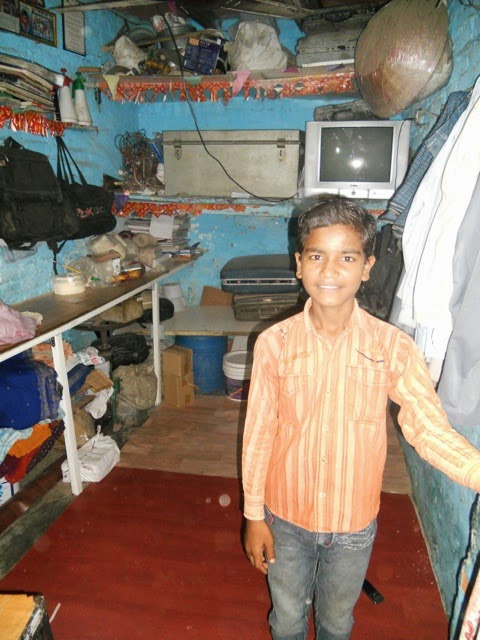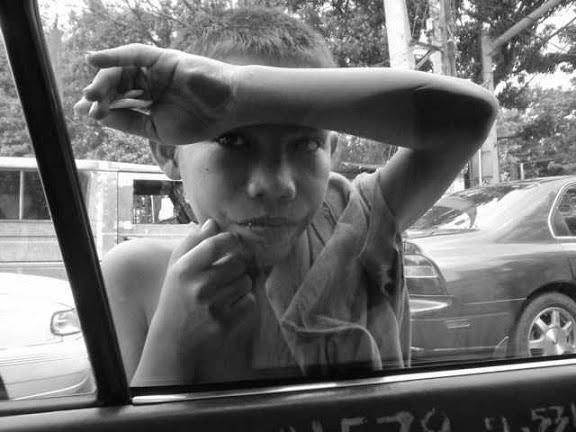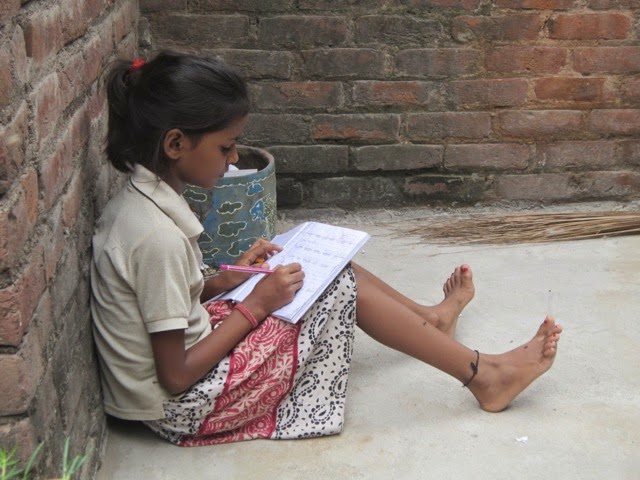
Capital Shame
 Amidst all the inane news about election 2014 that has turned out to be a circus of the absurd with Chandni is 3, weighs 3.7 kilos. This tiny soul lives in our capital city, a city where famous for its gargantuan parties and its brazen and unabashed habit of throwing food be it at wedding parties or what I call religious feeding frenzies. Just a stone throw away from such wasteful nosh-ups, lives a little girl who his 3 year old and has the weight of a new born. She should have weighed at least 10 kilos. The article quotes the finding of an NGO who ‘mapped’ the children of a single block of a slum resettlement colony and found that one in every five kids who had their heights and weights measured was malnourished and one in nine had “severe acute malnourishment.” Of these, six children were in such a condition that NGO workers took them to a hospital. Chandni is one of them. Does this gives you goose bumps or it is just a news item that you will simply forget once you have closed the newspaper and finished your cup of tea. Such news gives me sleepless nights and finds me seething in anger at our politicians and administrators who fill their pockets with impunity and alacrity. Such news makes me mad at the likes of me who are not even willing to share a coin to help such children. I say this with confidence and full responsibility as I have knocked at so many doors and had them slammed at my face. But no matter what, I will continue writing about it as this is my brand of activism that costs nothing but a few extra grey hairs and lines on my face.
Amidst all the inane news about election 2014 that has turned out to be a circus of the absurd with Chandni is 3, weighs 3.7 kilos. This tiny soul lives in our capital city, a city where famous for its gargantuan parties and its brazen and unabashed habit of throwing food be it at wedding parties or what I call religious feeding frenzies. Just a stone throw away from such wasteful nosh-ups, lives a little girl who his 3 year old and has the weight of a new born. She should have weighed at least 10 kilos. The article quotes the finding of an NGO who ‘mapped’ the children of a single block of a slum resettlement colony and found that one in every five kids who had their heights and weights measured was malnourished and one in nine had “severe acute malnourishment.” Of these, six children were in such a condition that NGO workers took them to a hospital. Chandni is one of them. Does this gives you goose bumps or it is just a news item that you will simply forget once you have closed the newspaper and finished your cup of tea. Such news gives me sleepless nights and finds me seething in anger at our politicians and administrators who fill their pockets with impunity and alacrity. Such news makes me mad at the likes of me who are not even willing to share a coin to help such children. I say this with confidence and full responsibility as I have knocked at so many doors and had them slammed at my face. But no matter what, I will continue writing about it as this is my brand of activism that costs nothing but a few extra grey hairs and lines on my face.
senseless debates on pointless topics like toffees and semantics, today’s newspaper brings us a news item that should make us hand our heads in shame. The article is entitled:
I have quoted these statistics ad nauseum but here they are again in caps this time: IN INDIA FIVE THOUSAND (5000) CHILDREN UNDER SIX DIE EVERYDAY OF MALNUTRITION, THAT IS 1.82 MILLION A YEAR, 208 AN HOUR, 3.4 EVERY MINUTE.
Does this still live you cold.
Here is more. Malnutrition under the age of 5 has severe and life long consequences, should you be lucky enough not to be part of the 5000/day! Here is what Wikepedia says: Malnutrition increases the risk of infection and infectious disease, and moderate malnutrition weakens every part of the immune system. For example, it is a major risk factor in the onset of active tuberculosis. Protein and energy malnutrition and deficiencies of specific micronutrients (including iron, zinc, and vitamins) increase susceptibility to infection. In communities or areas that lack access to safe drinking water, these additional health risks present a critical problem. Lower energy and impaired function of the brain also represent the downward spiral of malnutrition as victims are less able to perform the tasks they need to in order to acquire food, earn an income, or gain an education. Need I say more? By the way do you know what Marasmus and Kwashiorkor mean? They are form of malnutrition.
The bottom line is that you cannot make up for the lost years. Were you to take over a severely malnourished child aged 5 and give him the best nutrition possible, the harm would be done. The very fair and almost blond kids and protruding bellies that beg at traffic lights suffer from Kwashiorkor! It may already be too late for them.
But let us get back to Chandni and her story. Had things run in our country, things like the ICDS (Integrated Child Development Scheme ), remember, the programme that was set up in 1985 and meant to monitor all the children of India through Aganwadis (creches), then Chandni would not have been malnourished. But as is said in the article “Many of the children found to be malnourished are enrolled with aanganwadis,” says Pardarshita co-founder Rajiv Kumar, “Their growth should have been monitored and they should have got some nutrition from there.” Aanganwadis are responsible for the delivery of the Integrated Child Development Scheme (ICDS)-the only one reaching out to children under six years of age. Chandni’s father, Pramod, a security guard, says none of his five children have ever been weighed at the aanganwadi they go to and they “sometimes get some khichdi.” Get the picture again. You may ask why these aganwadis do not work?
I guess you know the answer. The money is largely siphoned off and a semblance of creche set up. The caretaker is often the local politicos nominee, the room is a dark dank hole with nothing to attack a kid, a broken weighing machine lies in a corner gathering dust, a vague meal is given sporadically.
Little Chandni cannot sit up. She has 4 other siblings and her father a rickshaw puller cannot sit with her in hospital while she is cared for. Her mother needs to look after her other kids, some who attend school. It is heart wrenching to see that in spite of the terrible conditions they live in, they know that education spells hope! Shame on us and on our rulers!
Chandni’s father wants a disability certificate for her, but d**** everyone, Chandni is not disabled and should not have been in this condition if things worked in this country of ours.
Imagine how many Chandnis there are in our city.
ICDS alone cannot help but at least can raise the red flag in time. To combat malnutrition you need clean drinking water, clem surroundings, sanitation and adequate nutrition. Chandni’s father earns 6000 rupees. 2000 rupees go in rent. How can you live in 1000 rupees a week!
To end this post let me draw your attention to another news item in the same paper. Our incumbent PM will not have to pay for water or electricity when he moves too his new house after elections.
This is India!
















.jpg)
.jpg)